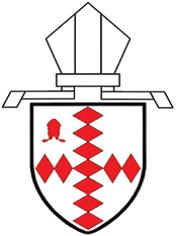Biology
 SUBJECT INTRODUCTION
SUBJECT INTRODUCTION
Head of Department: Amrit Aujla
The department has eight teaching staff and three technicians:
- Dr Lola Llledo - Head of Biology
- Ms Louise Britton – Head of Chemistry
- Mr Anthony Kepple - Head of Physics
- Mr Laurence Hartnett – Physics Teacher
- Mr Kelvin Gabari - Science Teacher
- Mr Laurence Handy - Science Teacher
- Mr Benjamin - Science Teacher
- Mrs Todorinovic - A Level Physics Teacher
- Mr Daniele Gasparro – Senior Science Technician
- Ms Rupal Kukadia – Science Technician
- Mr Andrew Deevey - Science Technician (part time)
‘Good teaching and learning’ - that has been the Science department’s focus in the last 10 years. We have achieved this – reflected in our consistently high attainment in Double and Separate Award Science. We are continuing to attain our goal of ‘outstanding teaching and learning’.
We are the largest department in the School as Science is a CORE subject (with effectively 3 subjects combined – Biology, Chemistry and Physics). We have a Head of Department (overall responsibility) and now have heads of Biology, Chemistry and Physics. We have six experienced teachers (5 full time, 1 part time). We all have vast experience (and success) at delivering the GCSE Curriculum with three Biologists, two Chemists and one Physics specialist.
There are 7 large laboratories, which have Fume Cupboards and the standard equipment necessary for delivering Science to a GCSE Level, as a practical subject.
THE CURRICULUM
A LEVEL - KEY STAGE 5 / SIXTH FORM
To study A level Biology is to embark on a journey of discovery!! Students learn about the basics of life, of organs and organ systems that can determine health, or sickness and disease. Best of all, students look deeper into the nucleus of cells and discover the amazing molecule called DNA. It controls almost everything that makes you, you.
Students will study the principles of electron microscopy, ultrastructure of cells, biological molecules, enzyme technology, transport and exchange mechanisms in plants and animals, classification, diversity and speciation.
In the second year, biotechnology and genetic engineering are key features, and the range and limits of homeostatic control systems, nervous and hormonal coordination. Many physiological and biochemical processes including respiration and photosynthesis are also explored.
Practical work is at the heart of biology and will be examined in the written exams. Field work is a compulsory element of the course, usually undertaken at Juniper Hall in Dorking.
AS: two written examinations each 1 hour and 30 minutes long. This is now a stand-alone qualification and will not contribute to A-level.
A-Level: three written examinations each 2 hours long, at end of two years.
There are 9 lessons over the two week timetable taught by 2 Biology specialist teachers.
ENRICHMENT & EXTRA-CURRICULAR
Recently the department held a successful ‘Science Week’ that involved all year groups, with our Year 12 and 13 students helping with the implementation and planning. This included a series of lessons that explored Forensic Science.
-
Science permeates through ALL aspects of our society, from the recycling bins that our department funded to the understanding of ‘reproduction’ – with social, moral and ethical issues. It would be impossible to list specific relevance as it is an ‘over-reaching’ subject
-
We have a KS3 Year 7 Science Club. This term the students have been designing and making models of Formula One cars.
Careers
Biology: The possibilities range from medicine to agriculture, forensics to zoology. Almost any degree will accept A-level biology.
Exam Board
Exam Board: AQA A level Biology https://www.aqa.org.uk/subjects/science/as-and-a-level/biology-7401-7402
Course Code: 7402
Specification: http://filestore.aqa.org.uk/resources/biology/specifications/AQA-7401-7402-SP-2015.PDF
Past papers:
http://www.aqa.org.uk/subjects/science/as-and-a-level/biology-7401-7402/assessment-resources
Text books
Main student textbook: AQA Biology (2nd edition) for Year 1 and Year 2 A- level Biology ISBN 978 019 835770 4 Glenn Toole and Susan Toole, Oxford University Press
LINKS & RESOURCES
BBC Bitesize is a good source of information, however ‘the World’ is Science – you cannot miss it!


